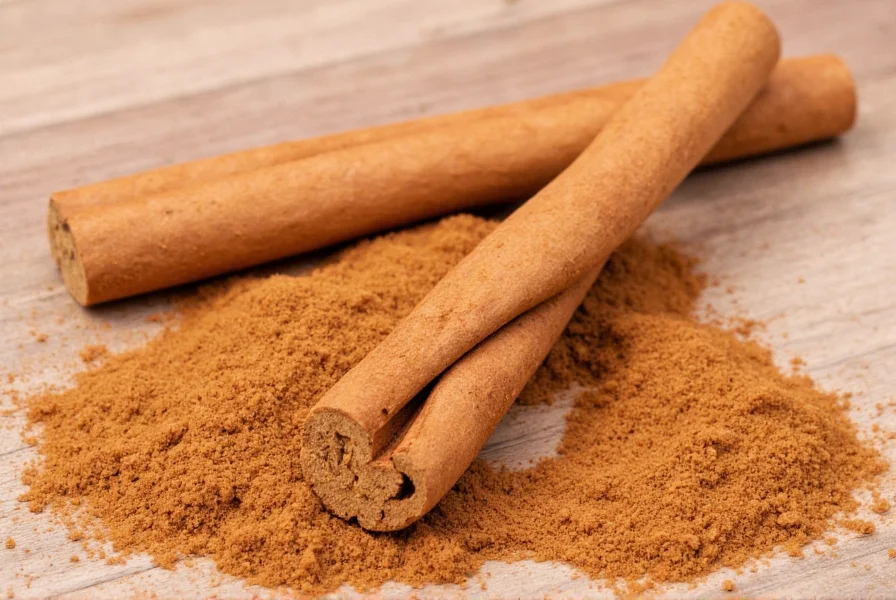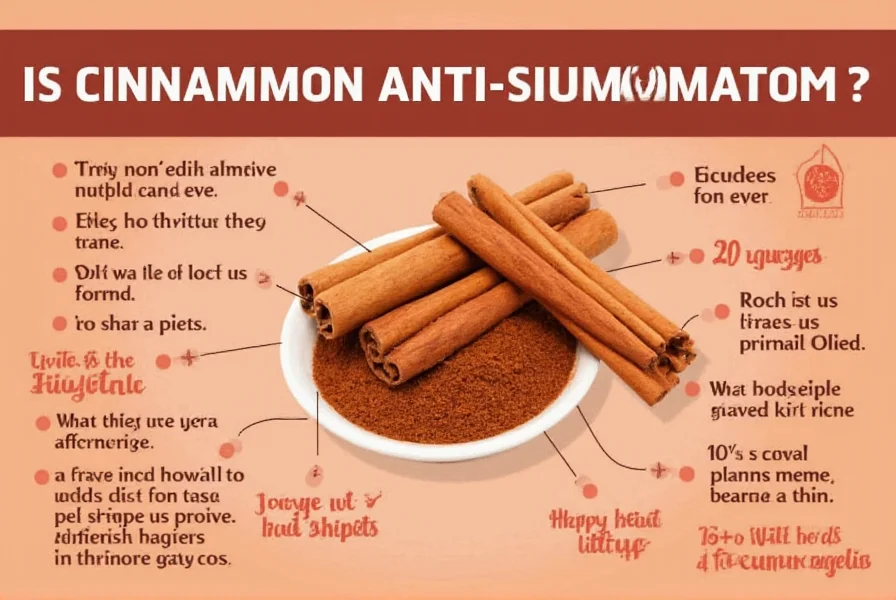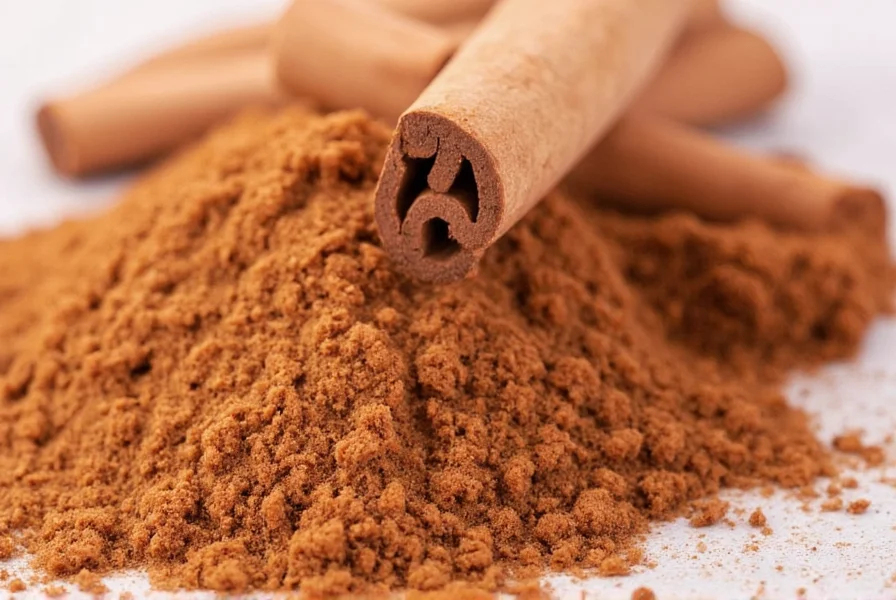Yes, scientific research indicates that cinnamon possesses anti-inflammatory properties. Multiple laboratory and animal studies have demonstrated that compounds in cinnamon, particularly cinnamaldehyde and polyphenols, can reduce inflammatory markers. However, human clinical evidence is still limited, and cinnamon should not replace conventional medical treatments for inflammation-related conditions.
Chronic inflammation affects millions worldwide and contributes to numerous health conditions. As interest grows in natural approaches to managing inflammation, many turn to spices like cinnamon. This article examines the scientific evidence behind cinnamon's anti-inflammatory effects, separating established facts from speculation.
The Science Behind Cinnamon's Anti-Inflammatory Properties
Researchers have identified several bioactive compounds in cinnamon that demonstrate anti-inflammatory effects in laboratory settings. The primary compound, cinnamaldehyde, gives cinnamon its distinctive flavor and aroma while also showing potential to inhibit inflammatory pathways.
Additional compounds including eugenol, linalool, and various polyphenols contribute to cinnamon's biological activity. These compounds appear to work through multiple mechanisms:
- Reducing production of inflammatory cytokines like TNF-α and IL-6
- Inhibiting NF-kB pathway activation, a key regulator of inflammation
- Decreasing oxidative stress that contributes to inflammatory processes
- Modulating immune cell activity involved in inflammatory responses
| Compound | Concentration in Cinnamon | Anti-Inflammatory Mechanism |
|---|---|---|
| Cinnamaldehyde | 60-90% of essential oil | Inhibits COX-2 enzyme and NF-kB pathway |
| Eugenol | Trace amounts | Reduces prostaglandin production |
| Polyphenols | High concentration | Antioxidant effects that reduce oxidative stress |
Research Evidence: From Lab Studies to Human Trials
While test tube and animal studies show promising results, the translation to human health benefits requires careful interpretation. A 2015 review published in Nutrition Research Reviews analyzed multiple studies and concluded that cinnamon demonstrates significant anti-inflammatory activity in preclinical models.
Human studies remain limited but growing. A 2019 clinical trial involving 50 participants with metabolic syndrome found that daily cinnamon supplementation (3g) for 12 weeks significantly reduced several inflammatory markers compared to placebo. However, the researchers noted that larger, longer-term studies are needed to confirm these findings.
Another study published in the Journal of the Academy of Nutrition and Dietetics examined cinnamon's effects on inflammatory markers in people with type 2 diabetes. Participants who consumed 1-3 grams of cinnamon daily showed modest reductions in C-reactive protein, though the clinical significance remains unclear.
Ceylon vs. Cassia: Important Distinctions for Health Effects
Not all cinnamon is created equal when considering anti-inflammatory benefits and safety. Two main varieties dominate the market:

Ceylon cinnamon (Cinnamomum verum) - Often called "true cinnamon," this variety contains lower levels of coumarin, a compound that can cause liver damage in high doses. It typically has a lighter color and multiple thin layers.
Cassia cinnamon (Cinnamomum cassia) - More common and less expensive, but contains significantly higher coumarin levels. Most supermarket cinnamon is Cassia.
For regular consumption aimed at potential anti-inflammatory benefits, Ceylon cinnamon represents a safer option due to its lower coumarin content. The European Food Safety Authority recommends limiting coumarin intake to 0.1 mg per kg of body weight daily.
Practical Considerations for Using Cinnamon
While research suggests potential anti-inflammatory effects, several important considerations exist:
- Dosage: Most studies use 1-6 grams daily (approximately 0.5-2 teaspoons), but optimal dosage for anti-inflammatory effects remains unclear
- Consistency: Benefits likely require regular, long-term consumption rather than occasional use
- Food matrix: Cinnamon consumed as part of whole foods may have different effects than isolated compounds
- Individual variation: Responses may differ based on genetics, health status, and gut microbiome composition
It's crucial to understand that cinnamon should complement—not replace—conventional medical treatments for inflammatory conditions. People taking blood thinners should consult their healthcare provider before consuming large amounts of cinnamon due to potential interactions.
Current Scientific Consensus and Limitations
The scientific community recognizes cinnamon's potential anti-inflammatory properties based on laboratory evidence, but emphasizes the need for more robust human clinical trials. Major health organizations haven't issued formal recommendations about cinnamon for inflammation management due to insufficient evidence.
Limitations in current research include:
- Small sample sizes in human studies
- Short duration of most clinical trials
- Variability in cinnamon types and preparations used
- Lack of standardized dosing protocols
- Insufficient data on long-term effects
Researchers agree that while cinnamon shows promise as a dietary component that may support anti-inflammatory processes, it shouldn't be viewed as a standalone treatment for inflammatory conditions.
Conclusion: A Promising Piece of the Inflammation Puzzle
Current evidence suggests that cinnamon does possess anti-inflammatory properties, primarily demonstrated in laboratory studies. The compounds in cinnamon, particularly cinnamaldehyde, show potential to modulate inflammatory pathways. However, human evidence remains limited, and more research is needed to determine optimal dosages, long-term effects, and clinical significance.
As part of a balanced diet rich in various anti-inflammatory foods, cinnamon may contribute to overall inflammation management. Those interested in exploring cinnamon's potential benefits should opt for Ceylon variety for regular consumption and maintain realistic expectations about its effects. Always consult with healthcare professionals before using cinnamon therapeutically, especially if managing chronic inflammatory conditions.

Does cinnamon really reduce inflammation in the body?
Laboratory and animal studies consistently show that cinnamon compounds can reduce inflammatory markers. Human studies demonstrate modest reductions in certain inflammatory markers, but the clinical significance for treating inflammatory conditions remains unclear. More extensive human research is needed to confirm these effects.
How much cinnamon should I consume daily for anti-inflammatory benefits?
Most studies showing potential anti-inflammatory effects used 1-6 grams (approximately 0.5-2 teaspoons) daily. However, optimal dosage isn't established. For regular consumption, limit Cassia cinnamon to 0.5-1 teaspoon daily due to coumarin content, while Ceylon cinnamon allows for slightly higher amounts. Always consult your healthcare provider before using cinnamon therapeutically.
What's the difference between Ceylon and Cassia cinnamon for inflammation?
Both varieties contain anti-inflammatory compounds, but Ceylon cinnamon has significantly lower coumarin levels. Since coumarin can cause liver damage in high doses, Ceylon is safer for regular consumption. Most research doesn't distinguish between types, so either may offer anti-inflammatory benefits, but Ceylon represents a safer option for ongoing use.
Can cinnamon replace anti-inflammatory medications?
No, cinnamon should not replace prescribed anti-inflammatory medications. While it may offer complementary benefits as part of a healthy diet, current evidence doesn't support using cinnamon as a substitute for medical treatment of inflammatory conditions. Always follow your healthcare provider's recommendations regarding medication.
How long does it take for cinnamon to reduce inflammation?
Research suggests potential effects may require consistent consumption over several weeks. Most clinical trials showing modest reductions in inflammatory markers used daily supplementation for 8-12 weeks. Individual responses vary based on health status, dosage, and other dietary factors.











 浙公网安备
33010002000092号
浙公网安备
33010002000092号 浙B2-20120091-4
浙B2-20120091-4